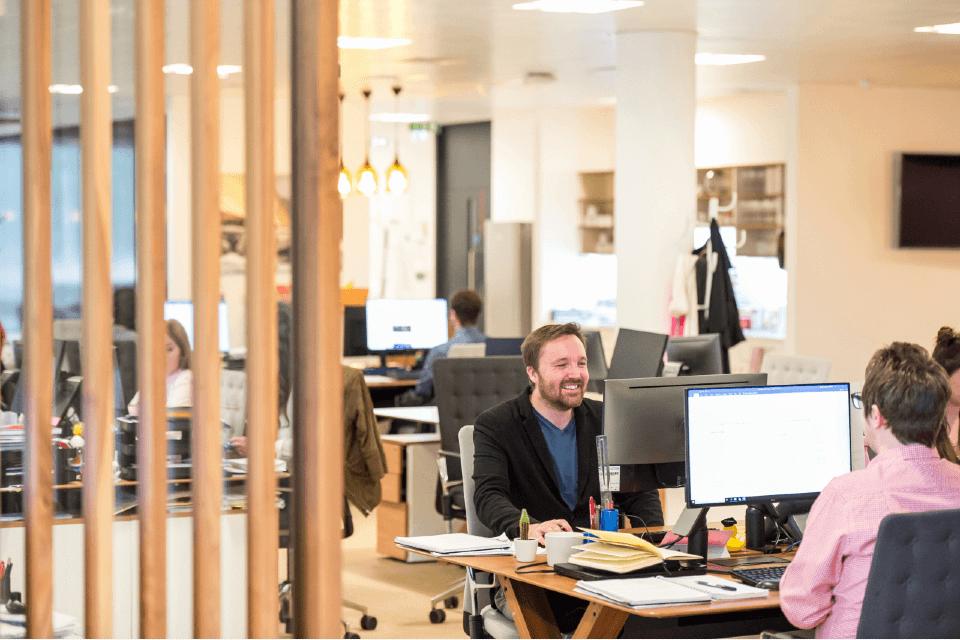October marks ADHD Awareness Month, providing an opportunity to raise awareness about the experiences of neurodiverse employees and the importance of inclusive workplaces.

Across the UK, various studies estimate that between 15% and 20% of people are neurodivergent. This equates to roughly 13.5 to 20 million individuals. Among them, a significant number live with attention deficit hyperactivity disorder (ADHD), a condition that continues to be widely misunderstood, particularly in professional environments. For adults, ADHD can profoundly affect daily work life if not properly recognised and supported, often influencing focus, time management, emotional regulation, and energy levels.
Creating an inclusive workplace goes far beyond simply implementing diversity policies. It’s about creating environments where neurodiverse employees can thrive, contribute meaningfully, and bring their creativity and energy to the table without fear of burnout. ADHD burnout is a particularly pressing issue, often characterised by extreme exhaustion, reduced productivity, and heightened anxiety. This burnout doesn’t stem from a lack of ability or motivation; it’s the result of sustained effort to function in systems not designed with neurodiversity in mind. When employees expend additional mental energy masking symptoms or compensating for unmet needs, the long-term effects can be both emotionally and physically draining.
Supporting employees with ADHD: Seeing individuals, not labels
Supporting employees with ADHD begins with understanding them as individuals. The condition manifests differently in each person. There is no single experience of ADHD. One employee might struggle with perfectionism, procrastination, and time blindness, while another might find maintaining focus or transitioning between tasks to be their biggest challenge. Recognising this variety is essential for any effective inclusion strategy.
Open dialogue is the foundation of meaningful support. Managers and HR leaders should make space for honest, stigma-free conversations with employees about what helps them succeed. This not only gives individuals agency in shaping their work environment but also enables leaders to design solutions that are truly effective and impactful. Importantly, employees must feel that their symptoms and experiences are taken seriously and understood. Rather than minimising or dismissing challenges, organisations should work collaboratively to identify barriers and co-create practical solutions.
Practical steps that make a tangible difference
There are numerous small, yet impactful steps organisations can take to support employees with ADHD. Flexible working arrangements are among the most effective, allowing individuals to manage their energy and focus during their most productive hours. Clear, structured workflows, such as task lists, timelines, and visual aids, can reduce cognitive overload and help employees stay organised.
Physical and environmental adjustments also play a role. Offering the option to work in quieter spaces or using noise-cancelling tools can help minimise distractions. Encouraging regular breaks throughout the day, especially after periods of deep focus, supports sustained productivity and wellbeing. Providing time management tools or access to coaching and mentoring can further empower employees to develop effective strategies for their specific needs.
Equally important is cultivating a culture where mental health and neurodiversity are openly discussed. When employees see that their workplace actively embraces difference, they’re more likely to feel safe and supported in disclosing their needs and to perform at their best.
Valuing neurodiverse strengths
Ben Wright, Head of Global Partnerships at Instant Offices, emphasises the importance of empathy and adaptability in building inclusive teams: “Supporting employees with ADHD is not just about accommodation; it’s about valuing the unique perspective and creativity they bring. By creating a supportive environment, we help prevent burnout and unlock their full potential.”
This perspective captures the broader goal: to move beyond simple awareness toward active inclusion. Neurodiverse individuals often bring exceptional problem-solving skills, creativity, and innovative thinking to their roles. When workplaces recognise and nurture these strengths, everyone benefits.
Building better workplaces this ADHD awareness month
ADHD Awareness Month offers every organisation a moment to pause and reflect on how well their current practices serve neurodiverse talent. Prioritising understanding, communication, and thoughtful workplace design isn’t just beneficial for employees with ADHD; it enhances the wellbeing and productivity of all staff.
Empower-Up has a whole host of information and resources on neurodiversity. Read more here.

Register or log in to get started in your organisation
Photo by Arlington Research on Unsplash


